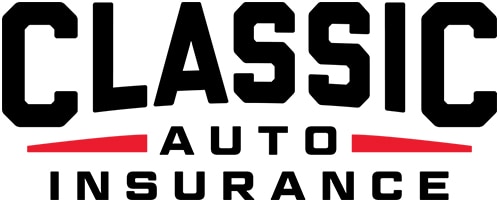The 4th Gear – Presented by Classic Auto Insurance
The 4th Gear is a video podcast that will give you the opportunity to listen to individuals that share your passion and enthusiasm for collectible cars. This platform will allow you to gain a unique insight and understanding of the benefits of being a member of a car club or auction or a DIY restoration.
Video Transcript:
Jeff:
Hello, and welcome to this edition of the fourth gear. I’m your host. Jeff brought us. This is presented by Classic Auto Insurance. And today we’re joined by Steve Moskowitz. Steve is the CEO and Executive Director of the AACA, Steve. Good morning. Thank you for joining us.
Steve:
Good morning, Jeff. Good to see you.
Jeff:
Now you’ve had an unbelievably successful career, right outta college working for O ended up owning your own. You had you, you, you just had everything really going very super exciting. Tell me what and how your relationship with the ACA began prior to you becoming the position that you are today.
Steve:
The short story is that I fell in love with antique cars during a, a visit to one of my car dealers in Illinois. The parts manager had a collection, was a restore. I went to his house. Uh, I got struck with the antique car bug. I was sort of a hot rodder at that time. And, um, that just led to this lifelong passion of restoring, particularly Oldsmobile. And that led me to the world’s largest antique car club, AACA. And I started restoring cars and showing them there. And one thing led to another. And after I closed my store, I was sitting home figuring out what my next step was, and low and behold, this was my next step.
Jeff:
How did you find out about the opportunity with AACA?
Steve:
I got some calls from a few people that were in the hobby and said, Hey, this is right up your alley. We need you here. And, and I thought about it and said, this fits all my, what I thought were my skillsets. And I just took a shot at it, and they were crazy enough to hire me.
Jeff:
And when you started with AACA and you and I go back quite a long way, the club, the building, everything was completely different than it is today. A lot of transitions, a lot of, even our lives with all the tech that’s available today has changed. Did you, could you have envisioned back then where you are today?
Steve:
Not even close when we got here, we certainly understand that there was time for a lot of change. The change was not something that was really embraced back in the day with no disrespect to any of those folks. It was just the way it was, but change is a good thing. And I love change. I love making things new and to get to the point where we are today with a building like you see behind me, that’s now our national headquarters and our library headquarters pretty spectacular. We have a lot of new events. We, our technologies changed. No. So I never thought we’d be where we are today. I just knew we needed
Jeff:
To be better. I saw that building prior to its renovation, the vision in just that one aspect is incredible. It, how is one of the largest automotive libraries in the world? The structure of that building had to be changed to actually carry the weight of the archives that you have. Tell us a little bit about that.
Steve:
Yeah. This building was repurposed. Uh, it was a former utility building. How were that hundred 10 people and we house 10 people now? So it was just a, it was a data center. It had to be completely gutted. And so we started from four bare walls and built a structure that met the needs. We have a car display, we have offices for our folks. And of course upstairs, we have our library with close to 3 million documents and 3 million documents weighing a lot. So there is a ton of steel in this building,
Jeff:
And you have some very skilled staffers working, managing that library, correct.
Steve:
This is not something we do just for kicks this with the serious operation. Our director of libraries got his master’s degree. We have other librarians with her master’s degree, another one studying to get her master’s degree right now, this is a professional library run professionally, and all the materials are handled professionally. That’s extremely important. Cause paper can degrade. We need to make sure that it’s taken care of properly and, and used properly. Yeah, it’s it. I’m pretty proud of what we’ve built up.
Jeff:
And this is open for anybody that this is a free public library, I guess you’d call it, correct.
Steve:
Absolutely. You don’t have to be a member of the club. Anybody from the world can access our library and use its archive. It’s just amazing the material up there, stuff that nobody else in the world has. It’s a great resource.
Jeff:
Let’s talk a little bit about the club and the membership a little bit. We spoke earlier about the fabulous magazine you guys have, which happens to have in this addition in November, December issue an article an about the museum that we’re talking about and it, it has, it has a beautiful spread in it in, in the center of it. And tell us a little bit about the magazine. Oh my gosh. You’ve completely redone it from the days that I first joined AACA back in the seventies,
Steve:
The goal with the magazine is to have a magazine that people read from cover to cover and make sure the stories are interesting, but we don’t wanna dry historical documents. So a lot of the stories about people in their cars, how they found it, how they restored it, those kinds of stories. It’s a hundred-page, full-color magazine, won a lot of awards. We have a fabulous editor, west Peterson who used to work for you. He was trained by the best. So we’re all good.
Jeff:
There you go. And part of the membership is the fact that you do get this beautiful bi-monthly publication and it is it’s about current events. It’s a lot of, as you say, it’s the things that are going on today. You also mentioned it here and I’d like you to talk a little bit about that. It mentions all the clubs and regions, quite a wonderful laundry list. Tell us a little bit about all the regions across the United States.
Steve:
Yeah. We have roughly 350 regions and chapters throughout the United States and, actually internationally as well. And those clubs, uh, do what we do on a national basis. Locally. They have events and they have social events and keep up the comradery and help one another. They’re very active. They help us put on our national shows. And so it’s a great way for somebody to join their local chapter and call and get very active in the hobby because as you and I both know you, you get out of life, what you put into it and the same way in the hobby by joining one of these local regions, it further enhances your experience in the car
Jeff:
Hobby and the best way to find out where these regions are would be to go online.
Steve:
Yeah. On our website, we list all our regions and chapters, some contact information, it’s all done by the state. And so you can see if there’s one close to you and reach out to them and say, Hey, I’m interested. I’m sure they would love to have some new people. Okay.
Jeff:
Tell us a little bit about what cars are accepted into the ACA. And I’m a, might be a two-part question there, may you have cars that are judged and you have other members that own cars that participate perhaps do tours because they wanna get involved. Not necessarily have their cars judged.
Steve:
Yeah. In the cause we accept everything. Everything is 25 years or older, foreign domestic. So on our show field, which makes it always interesting. You could have the late 1890s, early 19 hundred cars all the way up to 96, 97 car. So the breath is pretty amazing and it makes it fun to see all the different cars. We have a very robust judging program where we can judge and evaluate cars, whether they’re in a restored class, an unrestored class, or a driver class. And then, of course, we have our fabulous tours around the country where you can spend 3, 4, 5 days driving around to very interesting places and, and having a lot of fun with your fellow tourists. And for me with the top down on a convertible touring is you can’t get much better than that. And
Jeff:
While we’re on the subject of touring, you have several tours. I believe you have six national tours a year. Is that correct?
Steve:
Yeah. In that, it usually ends up 6, 4, 5. It, it could be anything depending on, uh, what we get that year. But yeah, we have all sorts of tours for very early cars, tours for cars and all different eras. Yeah. We have, we have a lot of tours and the local groups do an awful lot of tours as well.
Jeff:
And that’s additional tours on top of absolutely. Yeah. Tell us a little bit about what does someone needs to prepare? Old cars could be a little temperamental briefly. What, what are some things that, that someone needs to think about before taking their car out on a tour? You’ve got a lot of experience in that.
Steve:
Yeah, it’s pretty much just making sure the car is safe and operable, as you can get it going through, making sure your hoses and your belts are all okay. Most of us have a little package in our trunks with the spare parts in case something minor would break down. The great thing about touring is that if you do break down, man, there’s a herd of guys or, and gals just all over your car, trying to help you fix it. And there’s, there’s been nights that real early cars are being fixed in the parking lot in the middle of the night and the pan dropped and everything else. So it is just being smart, just making sure that your car is ready to go and inspected. And you’ve looked for any chances that something could go wrong
Jeff:
And the tours are well planned out. They, they have a scheduled day to day. Sometimes it might be visiting a museum or a private collection or a historic monument, but they understand how far you should go every day, hotels, lunches, dinners. It’s really well thought out. So you get to really enjoy the experience and not have to worry about what should I do today? Is that correct? Yeah.
Steve:
It’s absolutely spot on AB spot on everything is very well organized, very well planned. And so you, you have a great opportunity to relax with it a little bit and just make sure you don’t turn left when you’re supposed to turn. Right.
Jeff:
We know that’s never happened, right?
Steve:
No, never talk
Jeff:
About the club membership. You’ve got, uh, what’s how many thousands of people are we got?
Steve:
We got about 45,000 people, many women students, anybody can be a member of ACA don’t even have to own a car. There are no requirements, uh, to send in your dues money to me and I’ll be happy to accept it. No, we’re, we’re, we’re very open to anybody joining us. And we think there’s an awful lot of value, in doing so.
Jeff:
Now when you look at all the experiences and all the things that have gone on, what is the one experience you most remember as you have had this phenomenal job, what’s one of the most memorable things that come to mind. When you think about where you are today
Steve:
In the position you have, I’m very lucky to have this job some days like any job, some days it’s better than others, but I am fortunate. I get to meet some really great people. There’s a lot of events that have been interesting but just in the last couple of days, we’ve had something new happen and we’ve had one of our former presidents and one of the nicest human beings in the world, pinky Randall is known around the world is Mr. Chevrolet. He passed away, and it’s gotten me to think that the number one thing that I come away from this job is the people I’ve met in this hobby. Every one of them, there’s just so many great personalities and so many good people and kind people and people that are passionate about the hobby. And that’s what I enjoy. I enjoy being around people that are super, super passionate, and the car hobby breeds that I, I don’t know if other hobbies are that passionate. Uh, I don’t collect coins or stamps. I can’t believe it’s the same thing as cars just have that aura with because the way they look, the colors, the ability to drive them, it’s just it to me, it’s the greatest hobby in the world.
Jeff:
And what is, a typical day in the life of the CEO and executive director of the AACA
Steve:
There is no typical day. We’re responsible for running the business of the club. So we’re constantly doing what we need to do to support our events around the country, to get our mega Z out, to continue to build onto what we’ve developed here with this new building. We’ve already got plans for the future that we’re working on. We just continue to do the work. The staff is an awful hard-working group of people. And so the, whenever I hire somebody, I can, I tell them, throughout the bat, every day’s gonna be different. And every day around here is a bit different.
Jeff:
And as, as we kind of wrap things up here a little bit, one of the largest meets you have is
Hershey in Hershey, Pennsylvania. Tell us a little about that.
Steve:
Yeah. The fall meets in Hershey is we call our Eastern division fall nationals is the largest event we have during the year. It’s run by our Hershey local region. It’s got 9,000 flea market spaces about a thousand cars for sale. The car show is about 1100 cars. RM Sotheby’s has an auction. Here. It is. It is a car event on steroids, 25 miles of walking. You cannot make people understand it until they get here. And then they said, oh my, we didn’t expect this. And that’s just everybody that comes here gets blown away by what we have here. And, and it’s just a blast.
Jeff:
And it takes place on the property of giant stadium and, and Hershey park
Steve:
And the back of our own property, where we have the car show. And it’s the first full week in October, every year.
Jeff:
And whether it could be anything, we’ve sure seen it all over our, our many years of attending that event,
Steve:
It could be, but I’ve got the fix in for great weather for the future. <laugh>
Jeff:
Good job. Good job. I’m glad you’re connecting. You
Steve:
Know, that’s another one of them, you know, day-to-day things that I do here. Well,
Jeff:
Steve, thank you very much. Thank you for being part of our program, telling us, uh, a lot about AACA. It is exciting. It’s a great club. I’ve been, I’ve been a life member for a long time and I started off pretty much as you described. I was an enthusiast. I didn’t own a car yet. And in closing, you always talk about if you’re gonna buy your first car or you’re gonna have a, a car, what you should look for and what you should do real quick. Why don’t you touch on that?
Steve:
Buy what you love. Don’t worry about the money. Can’t take it with you. It’s all secondary buy something that you are passionate about. You’ll never regret the purchase.
Jeff:
You and that’s awesome advice. And with that close our program for today. Steve, thank you so much. Thank you for joining us. And I look forward to seeing ya out in one of your meets real soon.
Steve:
Look forward to seeing you too. Jeff. Thanks. Awful lot.





